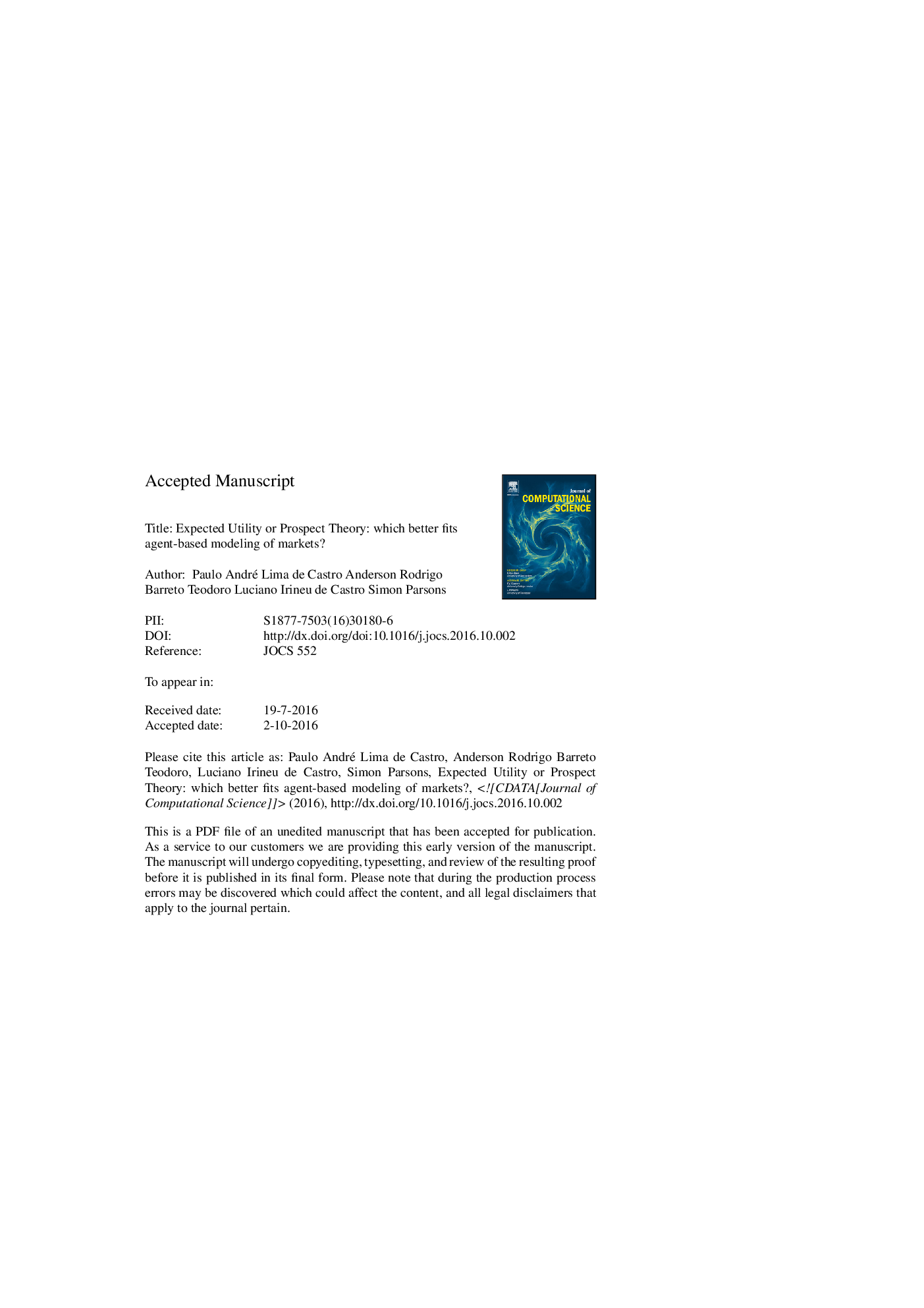| Article ID | Journal | Published Year | Pages | File Type |
|---|---|---|---|---|
| 10997978 | Journal of Computational Science | 2016 | 19 Pages |
Abstract
Agent-based simulations may be a way to model human society behavior in decisions under risk. However, it is well known in economics that Expected Utility Theory (EUT) is flawed as a descriptive model. In fact, there are some models based on prospect theory (PT), that try to provide a better description. If people behave according to PT in finance environments, it is arguable that PT based agents may be a better choice for such environments. We investigate this idea in a specific risky environment, a financial market. We propose an architecture for PT-based agents. Due to some limitations of the original PT, we use an extension of PT called Smooth Prospect Theory (SPT). We simulate artificial markets with PT and traditional (TRA) agents using historical data of many different assets over a period of 20 years. The results showed that SPT-based agents provided behavior that is closer to real market data than TRA agents, and that the improvement when using SPT rather than TRA agents is statistically significant. It supports the idea that PT based agents may be a better pick to model the behaviour of agents in risky environments.
Related Topics
Physical Sciences and Engineering
Computer Science
Computational Theory and Mathematics
Authors
Paulo André Lima de Castro, Anderson Rodrigo Barreto Teodoro, Luciano Irineu de Castro, Simon Parsons,
